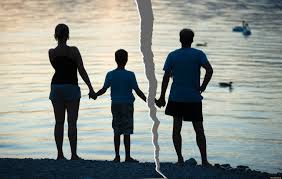Family Dynamics: A Factor In Child Arrangements Cases
In proceedings involving children, the parents should consider the impact their behaviour towards each other may have on how the...
Read more
The rise in divorce globally has turned the attention of academics and researchers towards the impact of separating with children. Parental divorce is generally considered one of the most stressful life events which can be experienced by a child. However, it is also clear that how well children adjust to parental divorce depends on their experiences before, during and after the legal papers are filed and signed.
With this in mind, a recent study found that there is a significant difference between the experiences of children who have gone through an emotional divorce as opposed to those who have experienced a legal divorce. The study authors argue against the traditional thought that any type of parental divorce is detrimental to children – but instead state that most children of legal divorces do not experience such severe emotional problems as those going through an emotional parental divorce.
Emotional divorce occurs when parents withhold emotion from their relationship while they stay living together and, ‘continue to work together as a social team’. Although their trust has gone and they are, ‘mutually antagonistic’, and engulfed in negative feelings towards each other, for various reasons they choose to stay together. This type of divorce usually happens gradually over time and without the partners being entirely aware of it. So, for many couples, emotional divorce usually occurs before a legal divorce is completed.
It is generally believed that children who experience the legal divorce of their parents are more prone to a variety of problems including psychological and social difficulties. However, reports have shown that the severity and type of impact on children can depend on whether they are from an emotionally divorced family or a legally divorced family. Overall, the report suggests that children from emotionally divorced families tend to be,’ less well adjusted than their counterparts from legally divorced families’. But why should this be? The report offered this explanation.
Emotionally divorced partners behave, ‘much like partners with high, unresolved and long-lasting conflicts’ with the repetition of the ‘same patterns of angry encounters’ which are never sorted out. This family atmosphere decreases a child’s emotional security, which then makes it difficult for them to manage their negative feelings. In addition, the continual high level of emotion weakens the child’s ‘psychological assets which are required for constructive emotional regulations’, which can then lead to problems in developing and maintaining personal relationships during that time and into the future. There is also the added complication that children often feel culpable when they become aware of an emotionally strained relationship between their parents.
Ultimately, the paper concludes that children living in emotionally divorced homes come to more psychological harm and display more dysfunctional behaviours than those living in legally divorced homes. It also finds that children from legal divorces are less anxious, depressed and stressed compared to those living within an emotionally divorced family.
Another recent paper describes how the divorce process itself is managed can have a significant impact on a child’s post-divorce adjustment. The study investigated the divorce experiences of children aged between 9 and 10 years old and from this, the study authors developed guidelines which can be used by professionals as well as families. The advice included suggestions as these:
Finally, if you feel out of your depth, children could also benefit from professional post-divorce mediation and counselling.
Share this article
Insights from our Family LawyersVIEW ALL
In proceedings involving children, the parents should consider the impact their behaviour towards each other may have on how the...
Read moreUnderstanding Parental Responsibility Parental responsibility is the legal term used to describe parents’ duties and responsibilities for their children. These...
Read moreFamily disputes involving children can be particularly emotive, which is why our expert children lawyers work tirelessly to understand how...
Read moreThe Christmas period can be a hectic and stressful time for all parents, but for separated parents, it can be...
Read moreCan a mother take a child out of the country without the father’s permission? The answer to this question...
Read moreI am often asked by a divorcing client: Do I need an Order recording the arrangements for the children? My...
Read moreHow to tell kids about divorce The rise in divorce globally has turned the attention of academics and researchers towards...
Read moreThe Easter holidays can be a flashpoint for disagreements. When couples separate, it can be very difficult to reach an...
Read more